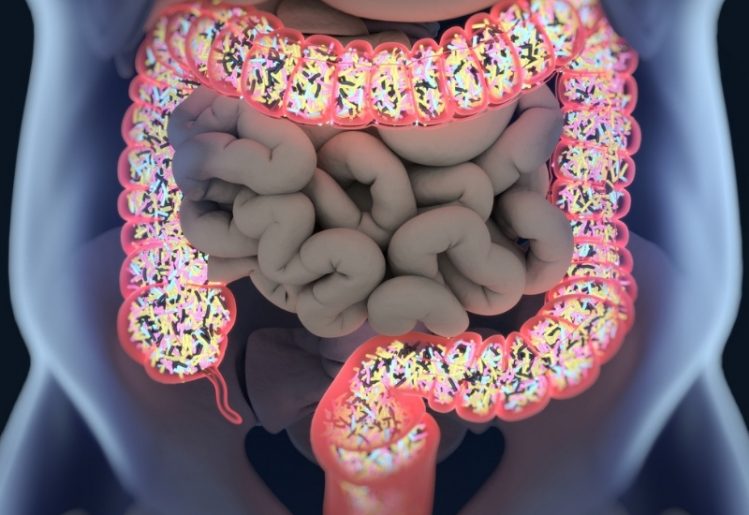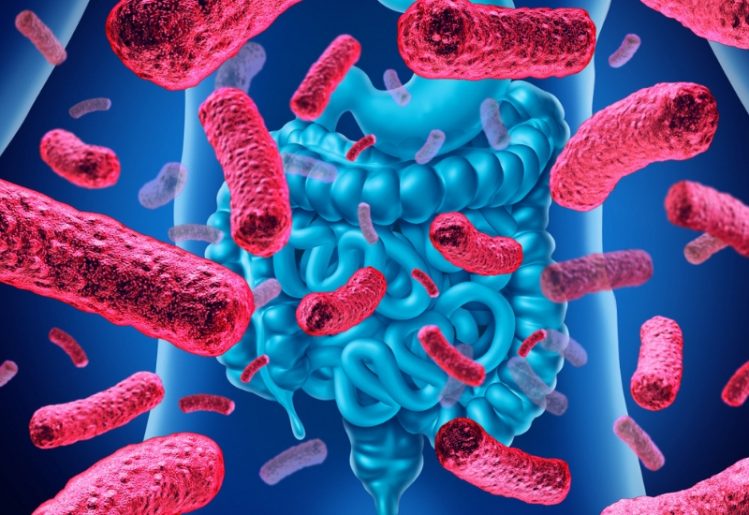Spring is a time of renewal and rejuvenation. All around us, trees are budding and new patches of green line the earth. In this time of new growth, many people seek to become healthier, ridding themselves of old habits while ushering in a new and healthier lifestyle. Often, maintaining a healthy weight becomes a focus.
Whether you want to address the issue of weight to improve your health and fitness, to fit into skimpier summer clothing, or simply to be a better version of yourself, there are several natural ways to embark on your fitness journey. The following safe and natural ingredients are known to promote healthy weight maintenance and can help support your efforts to shed those stubborn pounds.
1. Chromium for Energy and Metabolism
Chromium has long been one of the most popular weight maintenance supplements on the market. This mineral is essential to a healthy lifestyle because it helps your body to convert calories to usable energy rather than storing them as fat.
In addition, recent studies have shown that chromium has huge benefits for people who have metabolic syndrome, type 2 diabetes and other issues with blood sugar. Chromium appears to help maintain healthy blood sugar levels, which can be especially helpful to people who are trying to maintain a healthy weight.
2. African Mango for Fiber and More
 Eating more dietary fiber is a well-studied way to maintain a healthy weight. Sufficient intake of dietary fiber helps to stave off hunger, slow the absorption of sugar and may even prevent some calories from being absorbed.
Eating more dietary fiber is a well-studied way to maintain a healthy weight. Sufficient intake of dietary fiber helps to stave off hunger, slow the absorption of sugar and may even prevent some calories from being absorbed.
African mango is an excellent source of dietary fiber. However, it appears to have other weight-related benefits as well. In a study comparing African mango to oat fiber, participants who took African mango experienced increased weight loss. The exact reason is unknown, but this natural supplement appears to have huge potential for your weight maintenance arsenal.
3. Bitter Orange to Boost Calorie-Burning
Many people who want to lose weight turn to stimulants to increase the speed at which the body burns calories and fat. These can have unwanted and even dangerous side effects such as higher blood pressure and heart rate.
Bitter orange appears to offer a metabolic boost without the unwanted effects of stimulants. People who take this supplement have been found to burn calories more quickly without increased blood pressure or other dangerous adverse effects. That’s a win-win situation that can quickly contribute to a slimmer waistline.
4. Green Tea: An Anti-Oxidant With Fat-Burning Benefits
Green tea is popular as an anti-oxidant and detox agent. The extract of this tea helps cells to clean out metabolic wastes and modulate inflammation, helping to support healthy cell growth and promote overall health.
However, green tea also has another key benefit: It supports healthy fat-burning. Green tea also helps to increase energy levels, giving a much-needed boost to those who are trying to lead a more demanding healthy lifestyle. Because it has been used for thousands of years both as a health supplement and as a beverage, the safety of green tea is well-known.
5. Hawthorn for a Healthy Heart and Healthy Weight
Hawthorn has been used in traditional medicine for centuries for cardiovascular health. This plant is known to support healthy blood pressure already within normal ranges and to offer a wide range of benefits for people with heart issues.
This can be particularly important for people who are trying to lose weight and to exercise. Being overweight takes a toll on your cardiovascular system. Getting back into shape can be difficult when maintaining heart health is also a concern. Hawthorn helps promote optimum cardiovascular health while also reducing feelings of tiredness and other challenges encountered early in a fitness journey.
6. Java Tea to Support Fat-Burning and Healthy Appetite
 Long used as a medicine in Asian culture, java tea is quickly becoming popular in the West for its benefits in healthy weight maintenance. Java tea may soon be one of the most important natural remedies for achieving a healthy weight.
Long used as a medicine in Asian culture, java tea is quickly becoming popular in the West for its benefits in healthy weight maintenance. Java tea may soon be one of the most important natural remedies for achieving a healthy weight.
In addition to supporting healthy fat-burning, this supplement increases levels of the hormone leptin. Leptin is a hormone made by our bodies when we eat fatty meals and is known for creating a feeling of fullness. As a result, people who take java tea have been reported to feel fuller with less food and eat a significantly smaller amount of food. This can be very helpful for people who are struggling with newly decreased portions and the hunger that these can bring.
Losing Weight the Natural Way
Maintaining a healthy weight is important, but this should never come at the expense of whole-body health. Taking natural supplements can help many people who are struggling to maintain a healthy weight while leading a natural and wholesome lifestyle. In addition, there are other healthy ways to support healthy weight, such as:
- Drink more water; around eight glasses a day.
- Use yoga, walking and other gentle exercise in addition to your fitness regimen.
- Avoid sugar and other sweeteners.
- Make all of your meals at least half fruits and vegetables.
Maintaining a healthy weight is hard work. With the right help and a little willpower, you can make this spring a time of healthier new habits and a new you!
 Green tea is recommended for a number of reasons. It’s especially helpful in promoting healthy cell growth. It also supports overall health because its antioxidant properties can protect against free radicals and oxidation in the body. It’s also a natural stimulant that supports healthy fat metabolism. Due to its diuretic actions, green tea also stimulates urine production, which means it can help alleviate bloating and excessive water retention.
Green tea is recommended for a number of reasons. It’s especially helpful in promoting healthy cell growth. It also supports overall health because its antioxidant properties can protect against free radicals and oxidation in the body. It’s also a natural stimulant that supports healthy fat metabolism. Due to its diuretic actions, green tea also stimulates urine production, which means it can help alleviate bloating and excessive water retention. If your purpose for drinking diet soft drinks is to lower your blood sugar levels, you’re only contributing to the problem. Sweeteners like aspartame promote the growth of enterobacteriaceae, harmful bacteria that boost glucose levels.
If your purpose for drinking diet soft drinks is to lower your blood sugar levels, you’re only contributing to the problem. Sweeteners like aspartame promote the growth of enterobacteriaceae, harmful bacteria that boost glucose levels. Humans have fasted for millennia, mainly for religious or spiritual reasons. In modern times, however, many people are realizing that certain types of fasting can have dramatic health benefits. Intermittent fasting is one such type of fasting. In this type of fasting, people go a
Humans have fasted for millennia, mainly for religious or spiritual reasons. In modern times, however, many people are realizing that certain types of fasting can have dramatic health benefits. Intermittent fasting is one such type of fasting. In this type of fasting, people go a  There have been other studies showing the positive effects to fasting — even short term fasting such as intermittent fasting. One study showed that intermittent fasting
There have been other studies showing the positive effects to fasting — even short term fasting such as intermittent fasting. One study showed that intermittent fasting  The
The  Beyond the findings from Dr. Saji and his team, researchers from the Catholic University of Leuven in Belgium have also found a link between gut bacteria composition and clinical depression. According to the researcher’s findings, published in Nature Microbiology, most of the gut bacteria in our body are able to create neurotransmitters, including dopamine and serotonin. The researchers also figured out that people who have been diagnosed with
Beyond the findings from Dr. Saji and his team, researchers from the Catholic University of Leuven in Belgium have also found a link between gut bacteria composition and clinical depression. According to the researcher’s findings, published in Nature Microbiology, most of the gut bacteria in our body are able to create neurotransmitters, including dopamine and serotonin. The researchers also figured out that people who have been diagnosed with  Chemotherapy holds its ground as the most popular and readily available treatment for treating cancer and tumors, but it has had its criticisms throughout the years. The treatment utilizes a anti-cancer drugs in an attempt to kill off cancer cells, and while proven effective, it does take a toll on the human body and might even harm your brain.
Chemotherapy holds its ground as the most popular and readily available treatment for treating cancer and tumors, but it has had its criticisms throughout the years. The treatment utilizes a anti-cancer drugs in an attempt to kill off cancer cells, and while proven effective, it does take a toll on the human body and might even harm your brain. People who rarely engage in social interaction with others may be harming their brains as well. Failing to meet one’s physical, mental and social needs could lead to
People who rarely engage in social interaction with others may be harming their brains as well. Failing to meet one’s physical, mental and social needs could lead to  A recent study confirms that where people get their protein may affect their
A recent study confirms that where people get their protein may affect their  Ditch the vegetable and canola oils that you usually cook with and replace them with olive oil. This natural oil is rich in monounsaturated fatty acid, which affects cholesterol in two ways: While it reduces the level of LDL cholesterol, it also increases the level of HDL or good cholesterol in the body. Olive oil is also rich in disease-fighting antioxidants.
Ditch the vegetable and canola oils that you usually cook with and replace them with olive oil. This natural oil is rich in monounsaturated fatty acid, which affects cholesterol in two ways: While it reduces the level of LDL cholesterol, it also increases the level of HDL or good cholesterol in the body. Olive oil is also rich in disease-fighting antioxidants.